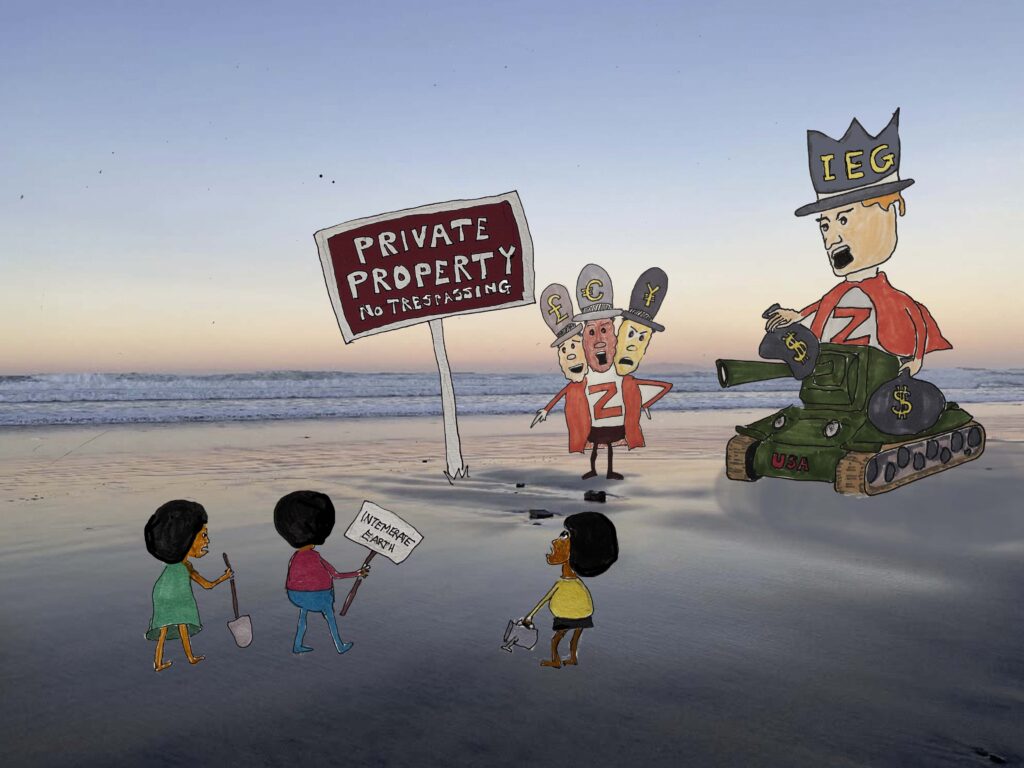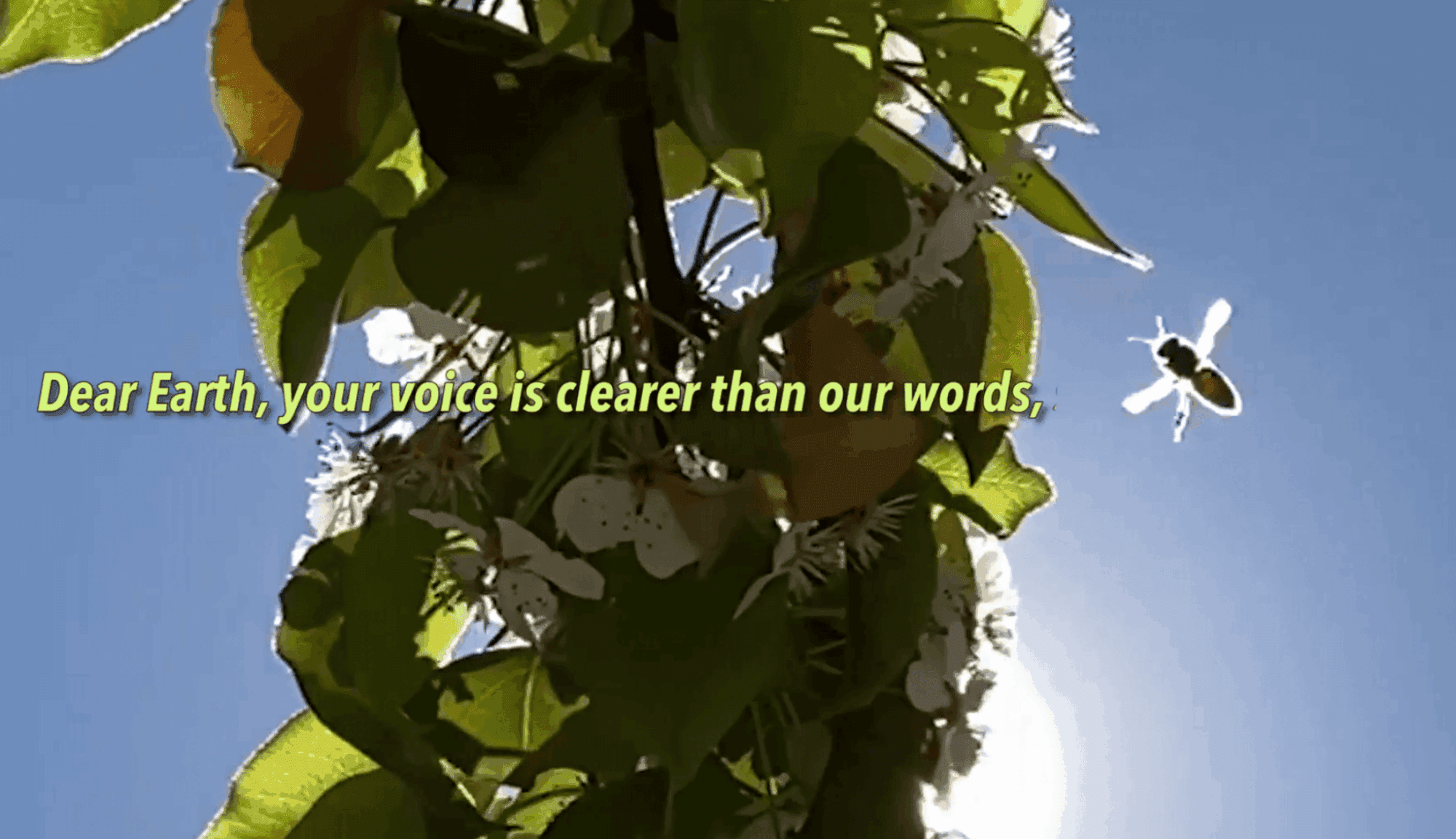
A new Wall Street Asset class has emerged with the announcement of the Intrinsic Exchange Group (IEG). Although there are no details given as to what this is except on their website where they define what “IEG is” and what “IEG is not,” I think it is fairly safe to say that what it is, is a privatization scheme for natural capital that follows the announcement of Wall Street’s Water privatization initiative, devised last year when water entered the futures market.
While no details have emerged (because outside of a hegemonic takeover there is not likely to be any just, fair, or equitable details), I suspect that there are going to be many attempts to throw a lot of money at this to try to build capacity and cooperation with other countries and central banks to allow for private interests to set the value for our environments. Coming from the Advanced economies, the IEG is essentially allowing Colonialism 5.0 to pave a road forward.
If we step back, it is obvious that the Global North’s inaction is a manipulative effort to exploit the desperation of the Global South to race towards programs like citizenship-for-territory, or other aid packages that will buy their allegiance while offering no tangible solution. In the case of the Pacific, large economies can leverage tremendous value from the privatization of maritime resources, particularly if people choose to surrender their territory for citizenship from a metropolitan state.
Whether oceans, forests, or deserts, the value of our biomes are our global commons. We simply cannot treat our ecological biodiversity as commodities, because the less we have the more valuable it becomes for markets. IEG is not a drive to save humanity, this is a fetishized initiative, a kind of “Squid Game” where the last-people standing will be rewarded with inscribing their names on a stone tablet that may never be seen, as there may be no future generation to see it.
It’s these kinds of utilities that appear to check off the environmental sustainability box in ESG reporting, but it does so at the expense of people and their rights to access. So I cannot help but wonder if much of the military base building near aquifers, or the licenses given to industries that contaminate our ground water, inflates the commodity scarcity pricing of water, and if it does, what does that do to how we access water?
As a bulwark to this kind of degradation and depletion, the Intemerate Equation is another kind of index altogether. But rather than it being managed by Wall Street, an intemerate index will be managed by and benefit the very same communities that are doing the work.
This is particularly relevant as the IUCN recognizes the central and essential role of indigenous communities in stewardship and conservation of biodiversity. There is a high potential for creating new financial markets based on the measurement of our interactions rather than on the valuation of commodities, shifting the demand for extraction towards one that values service.
Two papers address this shifting landscape. The first, A Legal Theory of Finance, holds that “financial markets are legally constructed and as such occupy an essentially hybrid place between state and market, public and private;” and that “the law-finance paradox tends to be resolved by suspending the full force of law where the survival of the system is at stake.” The second paper, “Beyond Financialisation:The Need for a Longue Durée Understanding of Finance in Imperialism,”summarizes that under financialization, “we have been living in a new era of capitalism, characterized by a historical shift in the finance-production nexus. Finance has begun to behave abnormally towards production. It has assumed a disproportionate economic size and, more importantly, has divorced from ‘real’ economic pursuits.”
This is the moment to seize. Can the ACP or developing countries use this opportunity to rewrite the global economy to be just, fair, and equitable, or do we allow Wall Street to once again set the terms of how we value our existence.
